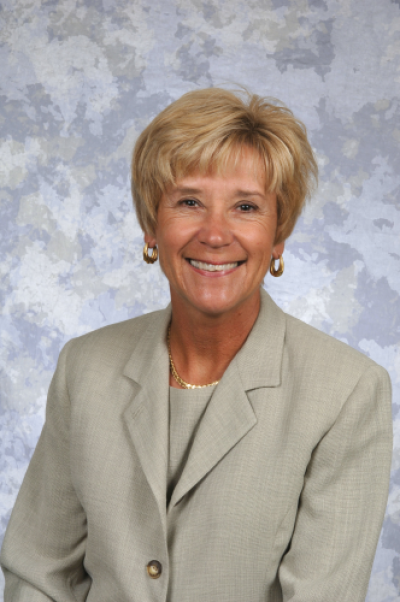Why these 4 dimensions of recovery are critical to addiction treatment
When most people think of addiction treatment, they assume the primary purpose is to end use of the substance. But the reality is, successful treatment of substance use disorder goes beyond cessation — it’s about helping people learn to live happy, productive and meaningful lives.

That’s why recovery is a lifelong process, and individuals and treatment providers must prioritize four key dimensions of recovery in order to be successful. By focusing on these four critical factors, built upon a strong foundation of hope, people with substance use disorder can recover by managing their disease, learn to be resilient and live productive, healthy lives.
1.Health. Managing overall health is critical to living in recovery. As with any disease, addiction impacts other areas of your life, and individuals can learn to assume responsibility for managing their own health — including physical and mental health — as part of recovery. Addiction is often not a stand-alone illness — if you are actively using substances your blood pressure may also be out of control, medical conditions like diabetes is often left untreated and, in the throes of addiction, going to the dentist or doctor for regular checkups may never cross your mind.
When I was growing up as part of a large Irish Catholic family, addiction was viewed as a moral failure. I had several aunts and who were alcoholics, and for the most part, it was viewed as a lifelong affliction — once you’ve got it, you can’t get rid of it. Of course, we now know that addiction is a disease that can be treated and managed just like any other. But it requires taking control of your overall health, and treatment teaches you how to make healthy living a priority.
2. Home. Everyone needs a stable, safe and supportive place to live, especially in recovery. If you’re in an unstable environment, you don’t know where you’ll sleep each night, and the people around you are engaging in behavior you’re trying to avoid, the recovery journey will be exponentially more difficult.
Of course, a stable and safe home do not necessarily mean it’s also supportive. You need cheerleaders, mentors and others around you to actively support your recovery journey. This is very tough for a lot of families because there are often unresolved issues and resentment surrounding the addictive behavior, which is difficult for some family members to forgive and overcome.
But you wouldn’t withhold support from a family member who’s dealing with cancer treatments, would you? Remembering that addiction is a disease and treating it as such can help families provide the necessary support, even as they work through frustration and anger. Treatment providers can — and should — work with families to understand the disease of their loved one and learn ways to be supportive.
3.Purpose. Having a purpose and engaging in productive daily activities creates balance and a sense of meaning. Addiction robs us of many things; self-worth, relationships, jobs, homes, all of which add to feelings of despair and sense of unworthiness.
Treatment and recovery focus heavily on restoring that sense of self-worth and self-esteem, and helping the individual learn how to become a contributing member of society once again. Finding meaning and a sense of purpose is what makes life worth living, and when you discover that you can have a life without alcohol and drugs, and in fact it is a better life, recovery becomes the foundation.
4. Community. Having relationships and social networks that provide support, friendship, love and hope are critical for recovery. With this disease, perhaps more so than any other, being part of a community that understands addiction, who have struggled with it themselves, is so important. They demonstrate that recovery is possible and provide mentorship to others who are looking to break the cycle.
Sometimes this means that you may have to distance yourself or disconnect with previous relationships that don’t support your recovery. Your college roommate may still be one of your best friends, but if those interactions typically involve meeting for drinks, you may need to restructure the contact — perhaps meeting for coffee instead or only over video chat.
Having the support of family and friends is critical, but so is support from peers in the recovery community and treatment programs can help in finding and engaging these connections. These folks understand the journey, they’re walking it with you, and only they uniquely understand what it takes to live in recovery day-to-day.
Hope: The Belief that Change is Possible
Hope — believing that the challenges and conditions you currently face can be overcome —is the foundation of recovery. It underpins the entire process and supports all four dimensions. Addiction is a chronic disease which requires active, daily attention. As other chronic diseases, relapses may occur. Hope allows us to recognize that we can interrupt a relapse, connect with our support system and continue our journey of recovery.
The truth is, you can’t have a relapse without having lived through a period of recovery, and a huge part of recovery is learning to build resiliency and focus on the wins. That’s why having peers in the recovery community is so important: they prove that you can have the kind of life you really want. Setbacks are a natural part of life, and through treatment and recovery, you will learn to face struggles, how to cope with and overcome them without the use of alcohol and drugs. A sober life is a free life, an independent life and a life worth living.
Patrice M. Muchowski, Sc.D., Sr. Vice President of Clinical Services for American Addiction Centers, is a licensed psychologist, ?an associate in the University of Massachusetts Medical School’s Department of Psychiatry and a clinical instructor in Harvard University’s Department of Psychology. Dr. Muchowski holds a doctor of science degree and a master’s of science degree from Boston University.




























